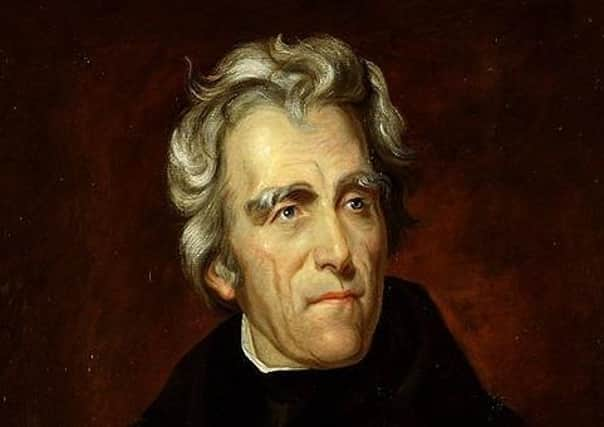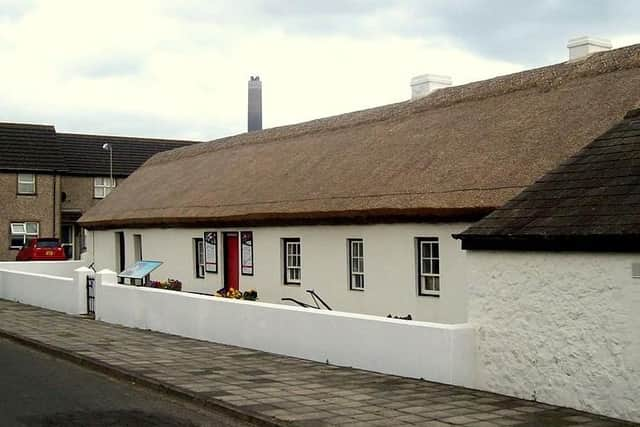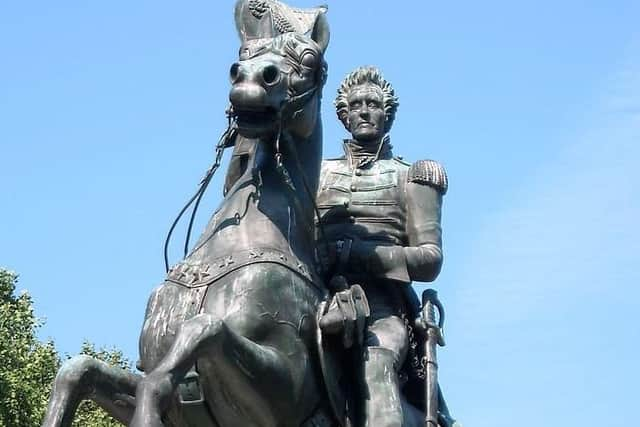Andrew Jackson, log cabin-born brawler with body full of lead shot


‘Old Hickory’ (as Jackson was nicknamed on account of his legendary toughness) was the first president to be elected from west of the Appalachians. Unlike his six predecessors, he was not born to great privilege and was the first president to be born in a log cabin. Nor was he an intellectual like John Adams or Thomas Jefferson, the second and third presidents respectively, who were among the leading intellectuals of their era.
Jackson liked to present himself as a down-to-earth man of the people (‘the farmer from Tennessee’) but upper class Americans viewed him with distaste as a crude, ignorant and bellicose brawler capable of shooting in cold blood any White House visitor who had the temerity to disagree with him or say something which did not meet with his approval.
Advertisement
Hide AdAdvertisement
Hide AdAlthough a lawyer by profession, there is overwhelming evidence to demonstrate that his understanding of the rule of law was seriously compromised by his ‘Spartan’ mother’s advice: ‘Never sue for assault or slander; settle them cases yourself.’


During the 1828 presidential election his political opponents produced a substantial text entitled ‘Reminiscences; or an Extract from the Catalogue of General Jackson’s Youthful Indiscretions between the Age of Twenty-Three and Sixty’, detailing 14 fights, duels, brawls, and shooting and cutting affairs in which Jackson ‘killed, slashed and clawed various American citizens’. He definitely killed at least one opponent (Charles Dickinson) in a duel in 1806 and he had so many pieces of lead-shot inside him that his lifelong intestinal problems may even have been caused by lead poisoning. None of this prevented his election. Happily, there were no duels during his eight years in the White House.
As the founder of the Democratic Party, he was the first president to found a modern political party. After his victory over the British at the Battle of New Orleans (January 8 1815) he was spoken of as ‘a second Washington’ but before 1822 he showed little interest in becoming president. He first contested the presidency in 1824 and, as we have noted, secured election in 1828 and re-election in 1832.
He was the first president (but not the last) to expand the role and powers of the presidency, so much so that his opponents bitterly denounced him as ‘King Andrew I’.
Advertisement
Hide AdAdvertisement
Hide AdJackson continues to polarise opinion even today, not least over his appalling treatment of the Cherokees, but, when Jackson decided on a course of action, he proceeded regardless of all opposition. To his critics, this was proof that he was reckless, wrong-headed and dictatorial.


Shortly before Jackson’s death, one of his slaves was asked if his master would get into Heaven on Judgment Day. ‘If General Jackson takes it into his head to git to Heaven, who’s gwine to keep him out?’
The pre-eminent US president between the presidencies of Thomas Jefferson and Abraham Lincoln, Jackson was the first (and remains, arguably, the greatest) of a long line of Ulster-Scots presidents.
Jackson was also the first president to be the targeted by an assassin and to date he remains the one and only US president to personally assail his would-be assassin.
Advertisement
Hide AdAdvertisement
Hide AdOn January 30 1835 Jackson attended the funeral of Warren R Davis, a South Carolina Congressman and lawyer. Afterwards, as Jackson was leaving the Capitol via the East Portico, Richard Lawrence, an unemployed and mentally ill English housepainter, stepped out from behind a column and aimed a pistol at Jackson’s back. The pistol misfired. Lawrence then pulled out a second pistol which also misfired.
Lawrence was quickly wrestled to the ground by those present, including another Tennessean politician of Ulster-Scots descent, Congressman David Crockett (who incidentally never referred to himself as Davy).
The 67-year-old Jackson’s fiery temperament kicked in and he vigorously laid into his would-be assassin with his cane. Jackson had to be restrained by his aides.
When the police tested Lawrence’s misfired pistols, they worked perfectly, driving bullets through an inch-thick wood plank at 30 feet. To his friends, Jackson’s survival could only be attributed to the intervention of Providence.
Advertisement
Hide AdAdvertisement
Hide AdLawrence was brought to trial on April 11 1835. The prosecuting attorney was Francis Scott Key whose principal claim to fame is his authorship of the words of ‘The Star-Spangled Banner’. After only five minutes of deliberation, the jury found Lawrence not guilty by reason of insanity.
Lawrence’s motivation was not political in any conventional or meaningful sense. By the early 1830s Lawrence was clearly mentally deranged and had succumbed to the delusion that he was King Richard III, the last king of England drawn from House of York who was killed at the Battle of Bosworth in 1485 and displaced by Henry VII, the first of the Tudor monarchs. He was convinced that the US government owed him a large sum of money and that the man denying him ‘his’ money was President Jackson. He believed passionately that when he obtained ‘his’ money he could assume his rightful place as King of England. For some bizarre reason he blamed Jackson for killing his father in 1832, despite the fact that Lawrence’s father had died nine years earlier and had never set foot in the United States.
There have been at least 20 known attempts on the lives of US presidents. Although most would-be assassins have been politically motivated, a number have had serious mental issues and a few have been declared legally insane.
To date four US presidents have succumbed to an assassin’s bullet: Abraham Lincoln, the 16th president, in 1865, James A Garfield, the 20th president, in 1881, William McKinley, the 25th president, in 1901 and John F Kennedy, the 35th president, in 1963. By contrast, only one British prime minster has ever been assassinated: Spencer Perceval who was murdered by John Bellingham, a merchant with a grievance against the government, on May 11 1812.